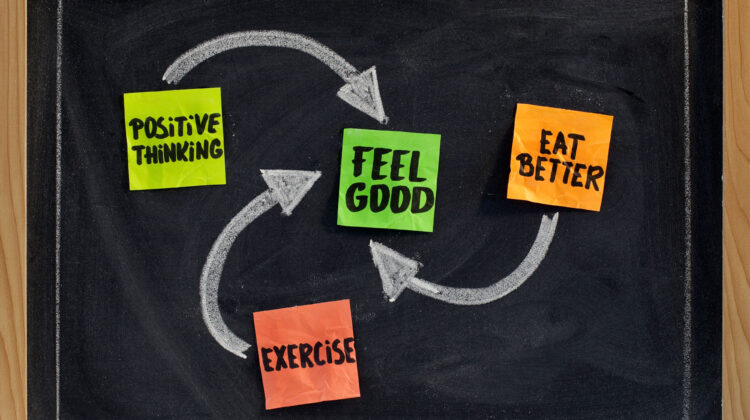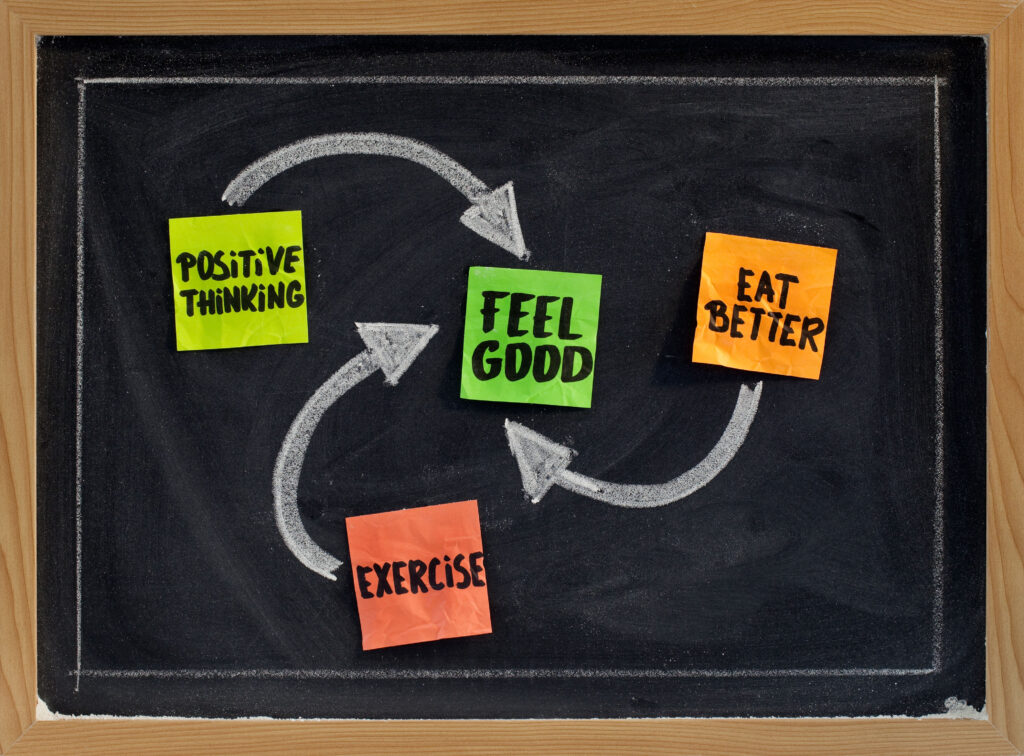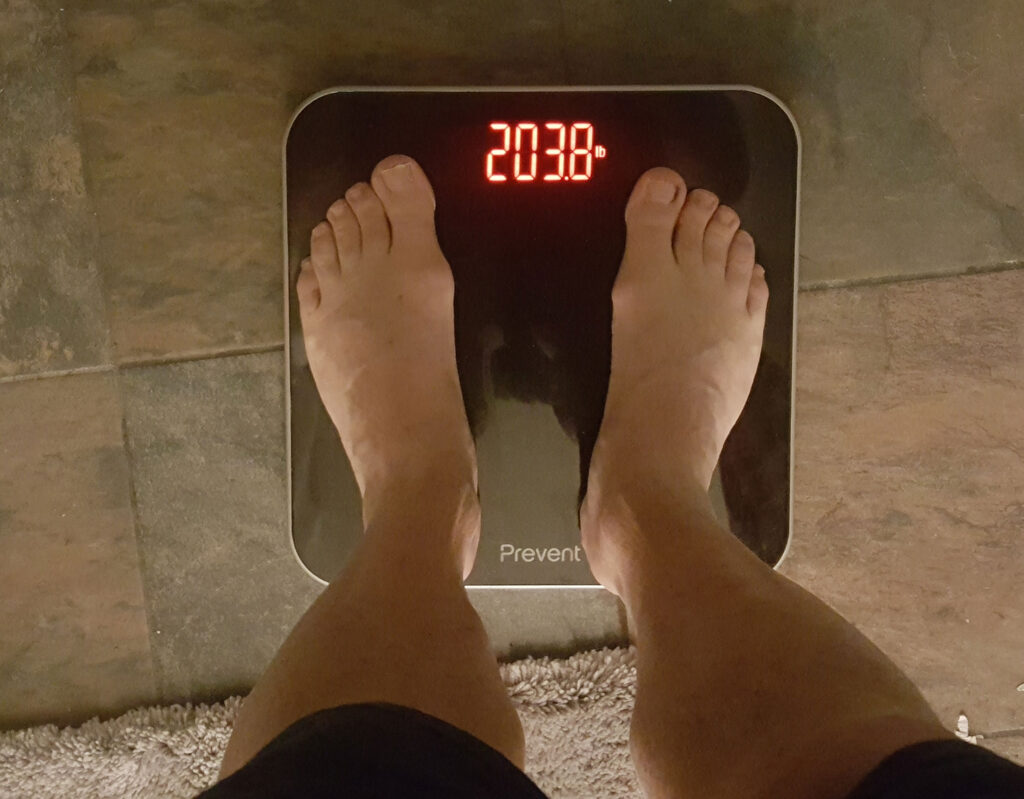

Even those with long-term physical health conditions see the new year as a time to address their physical health and coping statements can help.
Physical Health Coping Statements VS. Defensive Negative Self Talk
- (Negative Self Talk) I don’t feel like going for a walk –(Positive Coping Statement) “I always feel better after I get moving.”
- (Negative Self Talk) The gym is too far away – (Positive Coping Statement) “I can exercise at home.”
- (Negative Self Talk) Maybe tomorrow I will start – (Positive Coping Statement) “If I put one foot in front of the other, at least I am moving.”
When you turn around your thinking, you can move beyond defending your excuses.
Without a positive focus, our minds drift back to the easiest thing to do. Sadly, that is often to do nothing. And we justify doing nothing by defending it. This most often takes the form of Negative Self Talk.
Read more about a study focusing on Coping statements below:
Effects of coping skills training on generalized self-efficacy and locus of control.
Knowing that those who have a long-term physical health condition have a higher chance of experiencing mental health issues drives the focus on physical activity. This relationship between mental health and physical health has been studied at length. Many people with poor mental health are also dealing with long-term conditions. And these mental health challenges often dangle negative self-talk as a way to justify or defend not taking some sort of action. This can lead to potentially fatal consequences.
Those who have a mental illness have double the usual risk of fatal coronary heart disease, while also having four times as high a chance of a fatal respiratory disease.
They are also statistically more likely to be overweight or obese. This can create challenges in the mind about beginning a physical exercise regime. Knowing the relationship can motivate some to address one with the intention of affecting the other. But more often than not, these attempts become exercises in frustration. They begin with the best of intentions. And they often end without measurable results.
Even worse, when not staying motivated, people stop their newly begun physical exercises quickly.
Most do not develop new, long-term habits of daily activity. The result is a feeling of guilt or even shame for not feeling up to making the effort. These feelings can encourage mental health issues which further block our success. We end up defending our inaction with negative self-talk.
I am overcoming that, but it is not easy and is something I must consciously do each day.
Right now, I am struggling with my weight. Last spring, I was 173 pounds when I drove to the hospital and asked a professional for help with my depression. This morning, I am 203.8 pounds. My pants do not fit without a struggle. My stomach is pushing against the comfort-fit waistbands of my pants. There is no more comfort left. I either need to lose weight or get larger pants.

Once again, I have found negative self-talk that defends my actions, my inability to lose weight.
I find myself using negative self talk by saying to myself:
- I will start tomorrow
- It’s just a sleeve of Oreo’s
- All-day I ate the right foods, so I can have 5 squares of Ghirardelli chocolate tonight
- It’s the holidays, I’ll get started losing weight in earnest after New Years Day
- Using the meal tracker app on my phone is a lot of work
- Packing my lunch, I know at work I am eating well, so binging a bit when I get home is my reward
- It’s been years since I’ve had soda, but tonight water is just not doing it
- Most days I eat my apple on the drive home from work, so stopping once in a while for a milkshake and fries isn’t a big deal
You name the defense and I will fill in the negative self-talk to go with it.
Yet I know what the better response would be. I know that my mind is telling me to take the easy route. I will get to losing weight and making my pants fit better. And I did all of the right things at work today, so woofing down 5 sugar cookies while fixing supper isn’t a big deal. Having seconds at dinner isn’t a big deal.
But facing myself in the mirror as I get ready for bed, my weight is a big deal.
So let’s look at my list again and see what I can say using positive coping statements.
- I know I can start anytime I want, so why not do a little something today
- While Oreo’s are tasty, I did get red seedless grapes that are a delicious filling snack
- Eating the right foods during the day sets me up to lose weight. I don’t want to erase the day’s work. I can have grapes or popcorn instead of chocolate or cookies.
- There will always be special occasions, and I am special too, so starting my weight loss program now is my reward.
- I used a meal tracker on my phone in the past and I really enjoyed knowing what I was consuming, it was easy
- Doing the right thing at work builds when I do the right things about meals and snacks at home.
- I remember that putting lemon in my water helps quench my thirst, and I won’t have a hard time getting to sleep because there is no caffeine.
- An apple a day keeps the pounds away, I have too much to do at home to stop for a pre-meal, meal.
I understand that knowing and doing are two different things.
Starting the day, I pack my lunch with a plan to consume better calories, calories that will fuel my day. I stay away from excess sugars, use fruit, vegetables, and nuts. I consume 48 plus ounces of water every day. Actually, for my weight, it should be closer to 100 ounces. I have been told one ounce for every two pounds of weight. I have done it before, and I know I can drink this amount of water again.
I will report back in a few weeks on my progress with losing 20 pounds.
In between I will continue to focus on using coping statements to minimize my mental health conditions.







Leave a Reply